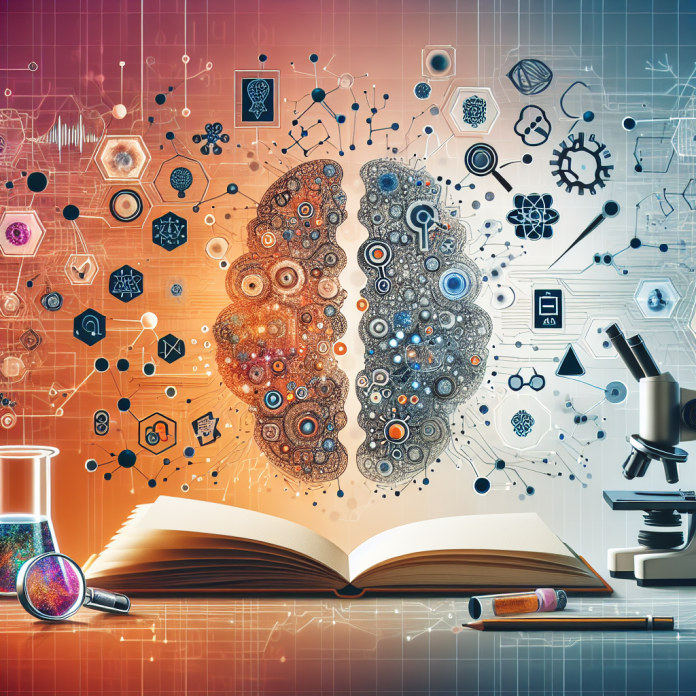Artificial Intelligence (AI) in Scientific Discovery: Transforming the Future of Research and Innovation
Imagine a world where robots assist scientists in groundbreaking discoveries, where algorithms predict the outcomes of experiments with unparalleled accuracy, and where AI models reveal hidden patterns in massive datasets that humans could never uncover on their own. This is not the stuff of science fiction; it is the reality of AI in scientific discovery.
**The Rise of AI in Scientific Research**
In recent years, AI has become an indispensable tool in scientific research, revolutionizing the way we approach complex problems and accelerating the pace of discovery across various disciplines. From astronomy to biology, AI is making its mark by enabling researchers to analyze vast amounts of data, simulate complex systems, and even design new materials with unprecedented precision.
One notable example of AI in scientific discovery is the use of deep learning algorithms to analyze genetic data and predict the likelihood of certain diseases. By training AI models on vast genomic datasets, researchers can now identify genetic mutations associated with diseases such as cancer, Alzheimer’s, and diabetes, paving the way for personalized medicine and targeted treatments.
**AI in Drug Discovery**
In the field of drug discovery, AI is driving innovation by significantly reducing the time and cost required to develop new therapeutics. Traditionally, drug discovery is a lengthy and expensive process that involves screening thousands of molecules to identify potential drug candidates. With the help of AI, researchers can now use machine learning algorithms to predict the properties of molecules, simulate their interactions with proteins, and even design novel drugs from scratch.
For example, DeepMind, a subsidiary of Alphabet Inc., has developed AlphaFold, an AI system that can accurately predict the 3D structures of proteins, which is crucial for understanding their functions and designing targeted drug therapies. By combining AI with traditional drug discovery methods, researchers can now identify promising drug candidates faster and more efficiently than ever before.
**AI in Materials Science**
Materials science is another field that has benefited greatly from AI in scientific discovery. By leveraging AI algorithms to analyze the properties of materials, researchers can now design new materials with specific characteristics for a wide range of applications, from renewable energy to advanced electronics.
One remarkable example of AI in materials science is the discovery of a new type of glass by researchers at the University of Cambridge. By using machine learning algorithms to analyze the atomic structure of glass, the researchers were able to design a novel glass composition that is both transparent and conductive, opening up new possibilities for flexible electronics and wearable devices.
**Challenges and Opportunities**
While AI holds great promise for scientific discovery, it also presents a number of challenges that must be addressed. One of the main challenges is the lack of transparency and interpretability in AI models, which can make it difficult for researchers to understand how AI algorithms arrive at their conclusions.
Moreover, the ethical implications of using AI in scientific research, such as biases in data and algorithmic decision-making, must be carefully considered to ensure that AI is used responsibly and ethically.
Despite these challenges, the opportunities presented by AI in scientific discovery are vast. By harnessing the power of AI to analyze data, simulate complex systems, and design new materials, researchers can unlock new insights, accelerate the pace of discovery, and ultimately transform the future of research and innovation.
**Conclusion**
In conclusion, AI is revolutionizing scientific discovery in ways we could have only dreamed of a few decades ago. By using AI algorithms to analyze data, simulate systems, and design new materials, researchers can uncover hidden patterns, accelerate the pace of discovery, and ultimately push the boundaries of human knowledge.
As we embrace the power of AI in scientific research, it is essential to address the challenges and ethical implications associated with this technology to ensure that AI is used responsibly and for the benefit of all. With continued advancements in AI and machine learning, the future of scientific discovery is brighter than ever before.

